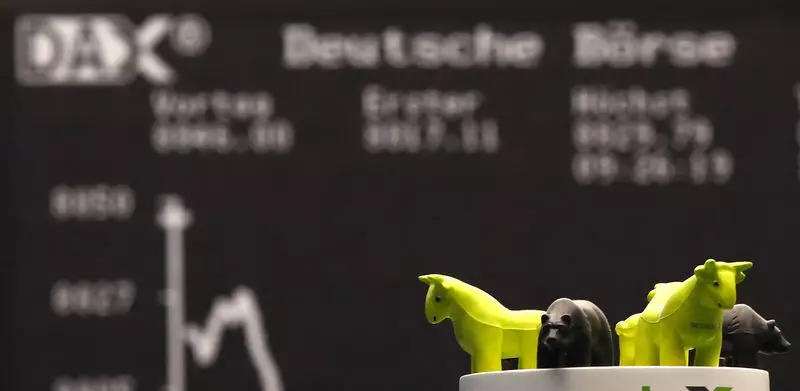As the trading year draws to a close, European stock markets have experienced a slight downturn. On the last full trading day of 2024, investors are seen taking profits after a generally successful year for equity markets on the continent. The German DAX index has remained mostly unchanged, the French CAC 40 observed a minor dip of 0.1%, while the UK’s FTSE 100 fell by 0.3%. Trading activities are expected to slow considerably on this final trading day, as market participants gear up for the upcoming New Year celebrations, leading to early closures for many indices on Tuesday.
Despite the slight decline observed on Monday, the pan-European STOXX 600 index maintains an impressive upward trajectory, reporting an approximate gain of 5.5% for the year. Notably, Germany’s DAX has skyrocketed with an increase of over 19%, showcasing resilience amid economic challenges, while the FTSE 100 also recorded a healthy 5% rise. In contrast, the CAC 40 has notably lagged behind, reflecting a decline of 2.6%.
Inflation and Central Bank Policies
Compounding the mixed market performance, recent inflation data out of Spain indicated a rise in the EU-harmonized annual inflation rate to 2.8% in December, up from 2.4% in November. Meanwhile, the European Central Bank (ECB) has acted to cut interest rates, expressing intentions for further reductions as economic growth across the EU shows signs of stagnation. Robert Holzmann, a member of the ECB Governing Council, hinted at potential delays for future rate cuts due to the recent inflation uptick, suggesting that while hikes are off the table, the timing of cuts may be adjusted.
This shift in monetary policy reflects a broader concern surrounding inflation in the Eurozone, which has shown an acceleration from 2.0% in October to 2.2% in November. As the ECB strives to meet its target rate of 2%, balancing inflation control with economic stimulation remains a key challenge.
Corporate Developments and Commodity Prices
In the realm of corporate news, Siemens Healthineers has faced a slight 1% decline in stock following remarks from Siemens’ CFO regarding a review of the company’s majority stake in its medical technology unit. Such decisions can influence investor confidence and reflect broader trends within the corporate sector, indicating a potential shift in strategic direction as companies reassess priorities heading into the new year.
On the commodities front, crude oil prices also saw declines as the market navigates through a thin trading environment, influenced by holiday season factors. Both U.S. crude futures (WTI) and Brent crude dropped by 0.1%, positioning at approximately $70.53 and $73.69 per barrel, respectively. These declines mark significant losses in the oil market for the year, driven largely by waning demand concerns from China, the world’s foremost oil consumer, indicating that external factors continue to exert substantial influence on global commodity prices.
As 2024 draws to a close, European markets reflect a complex interplay of profit-taking, economic challenges, and varying corporate performances, all while closely watching inflation and central bank responses that will shape the economic landscape into the new year.

